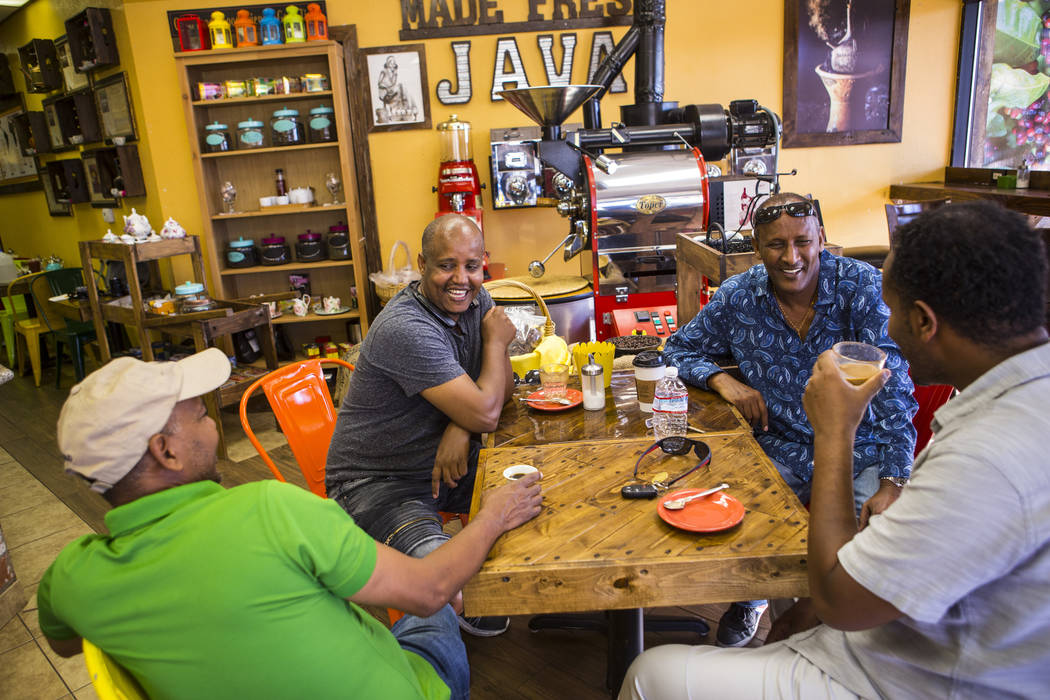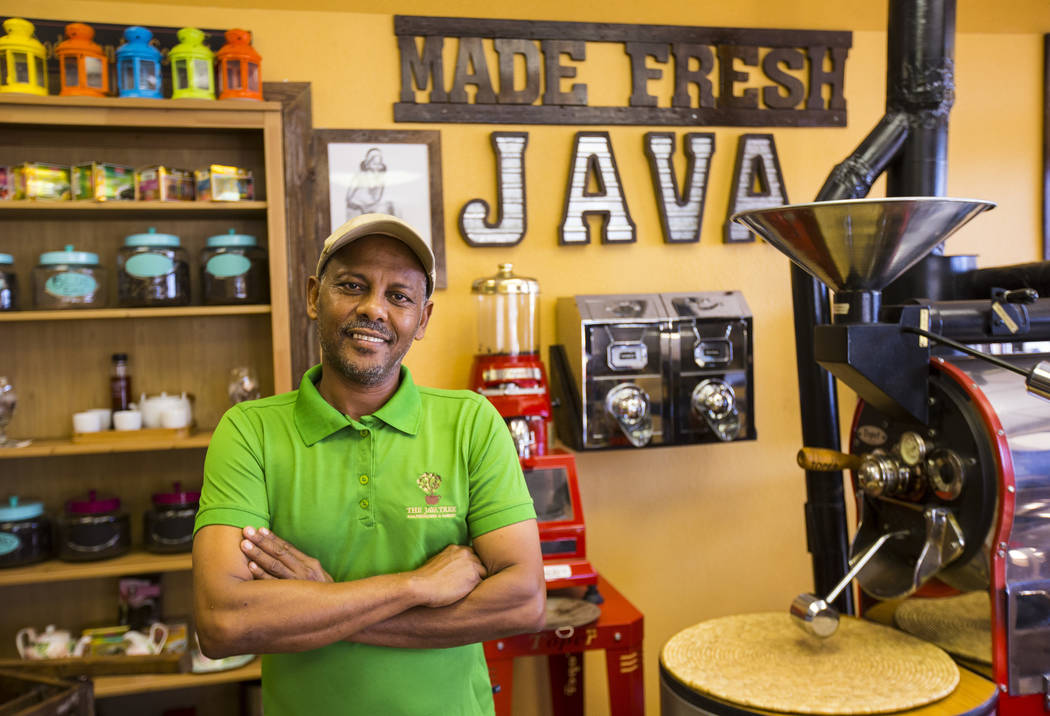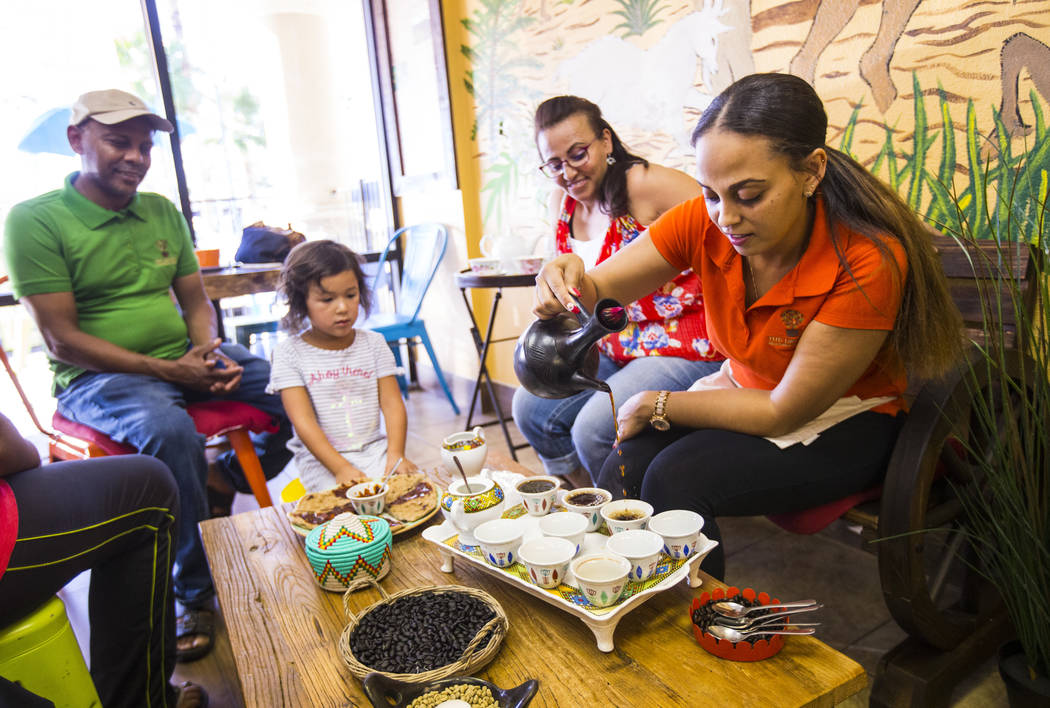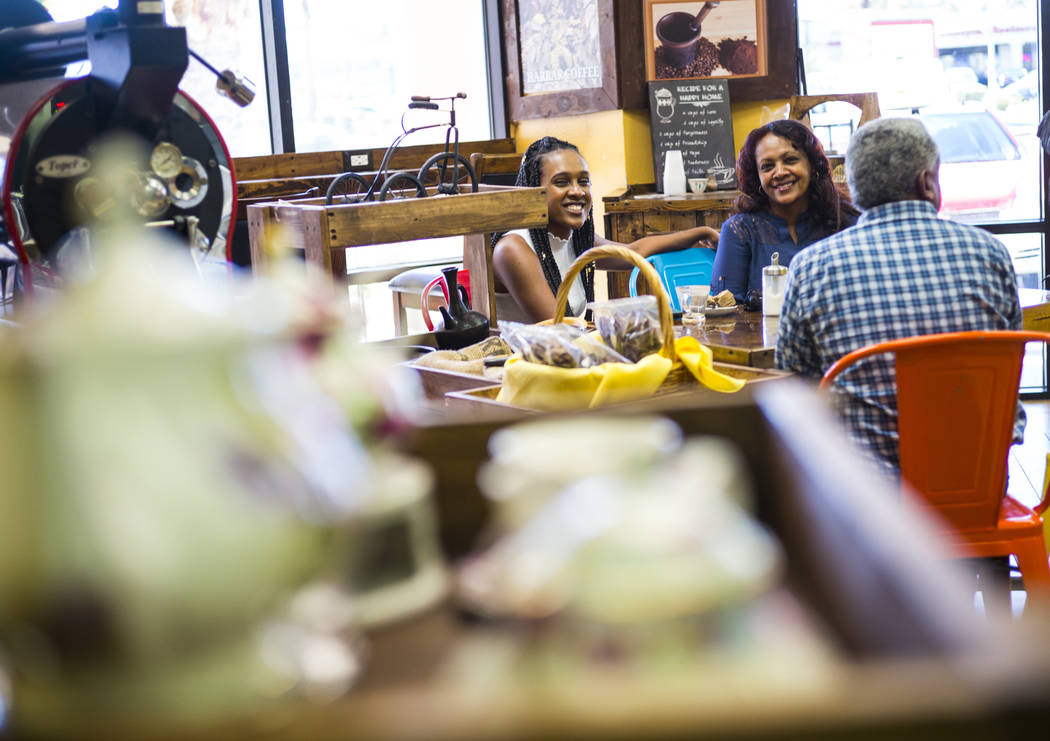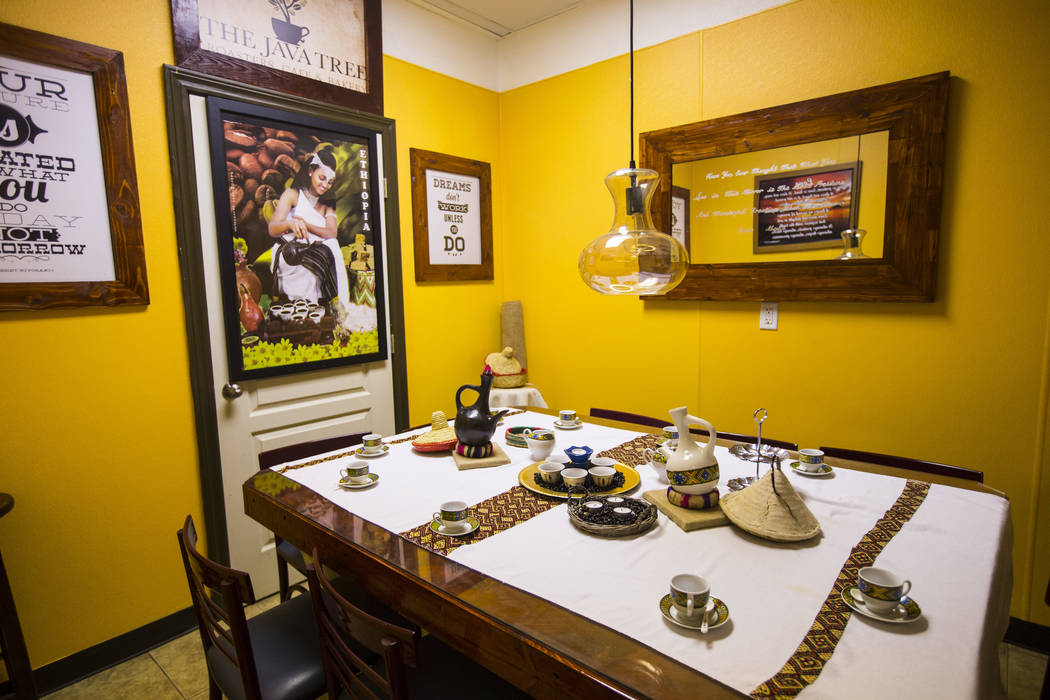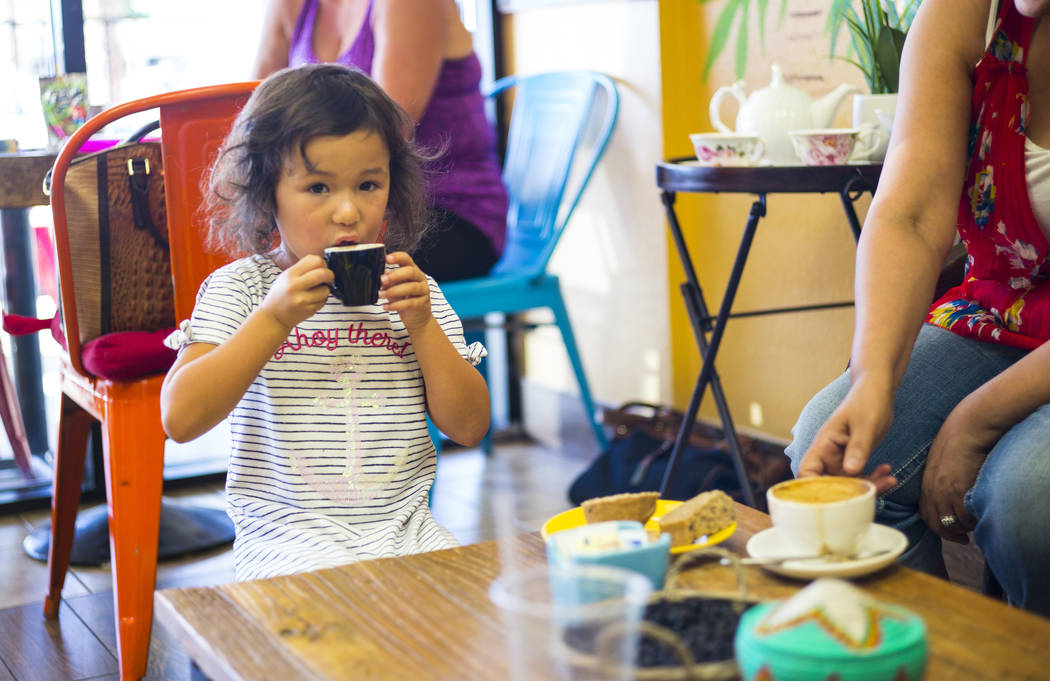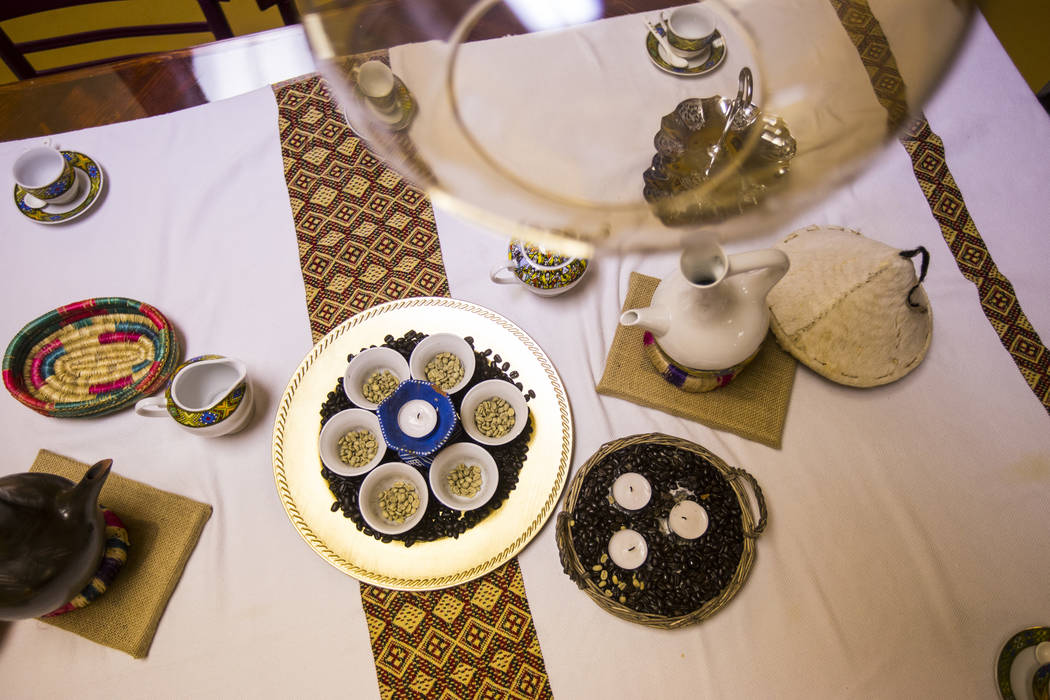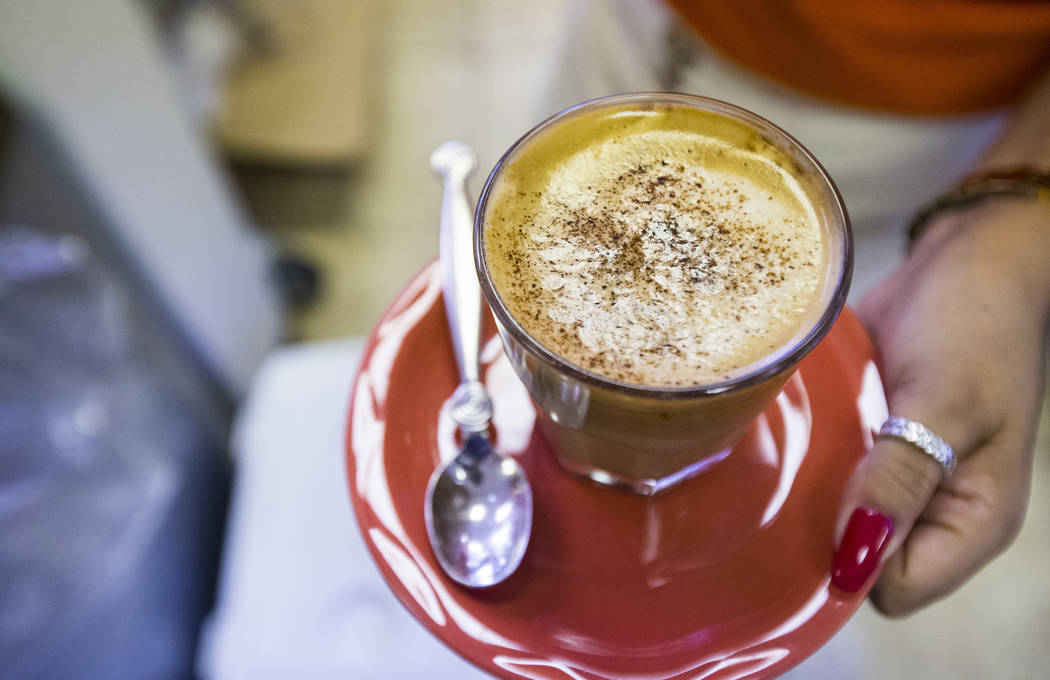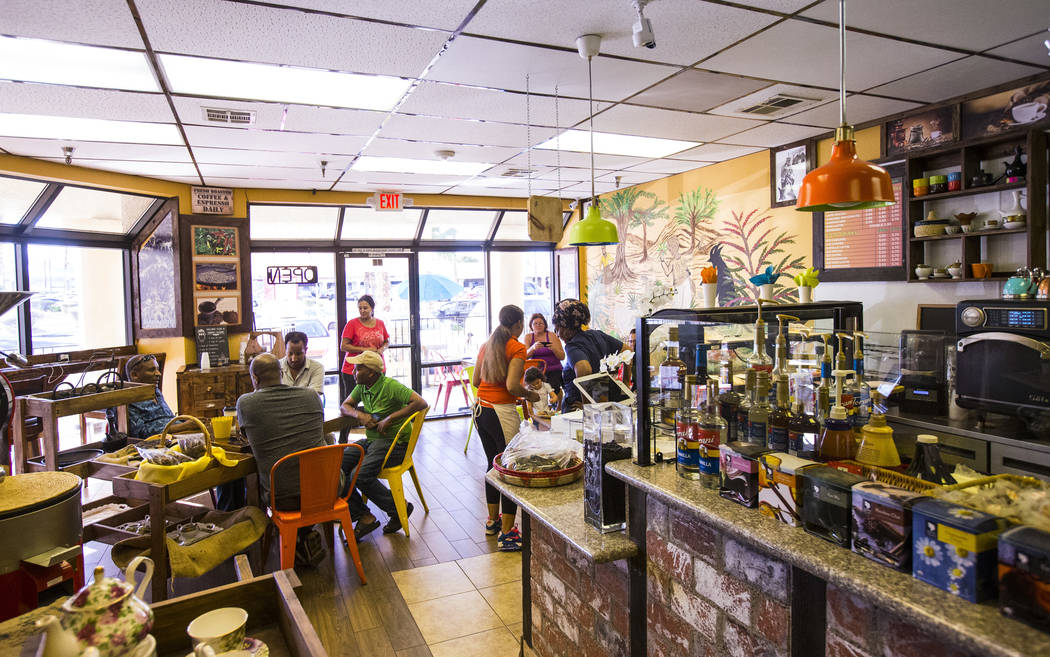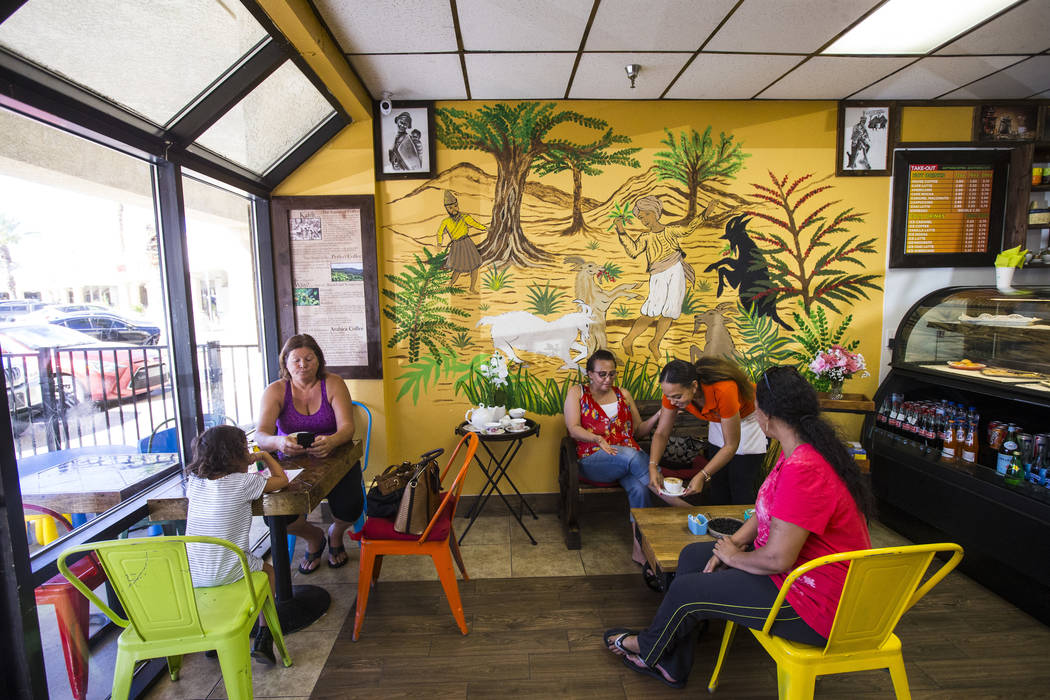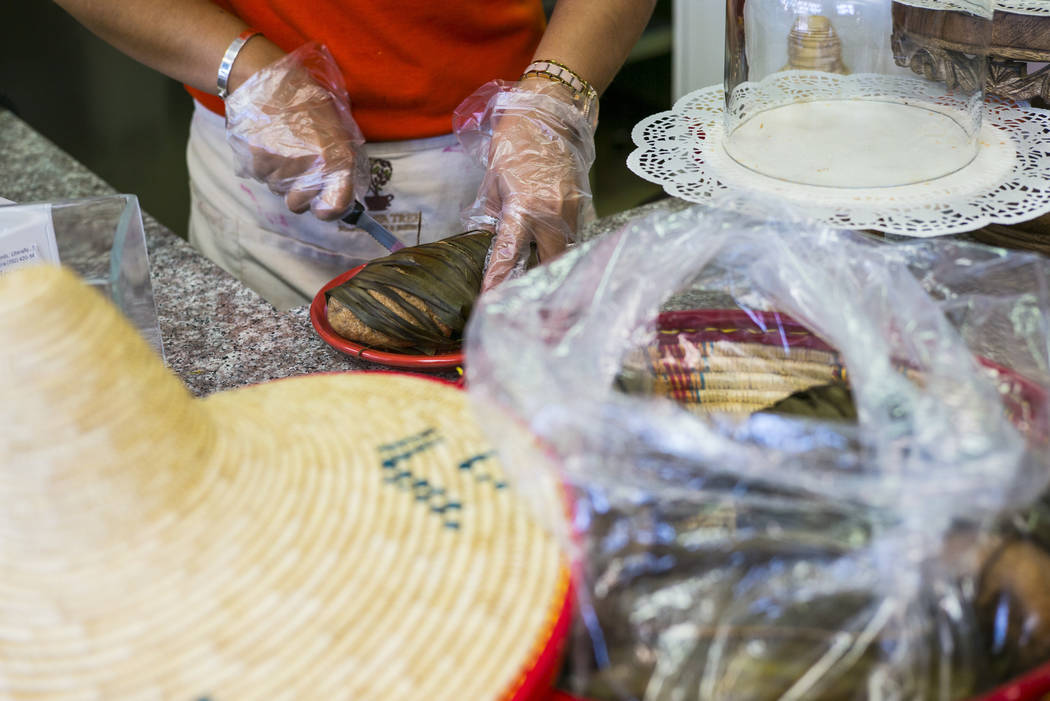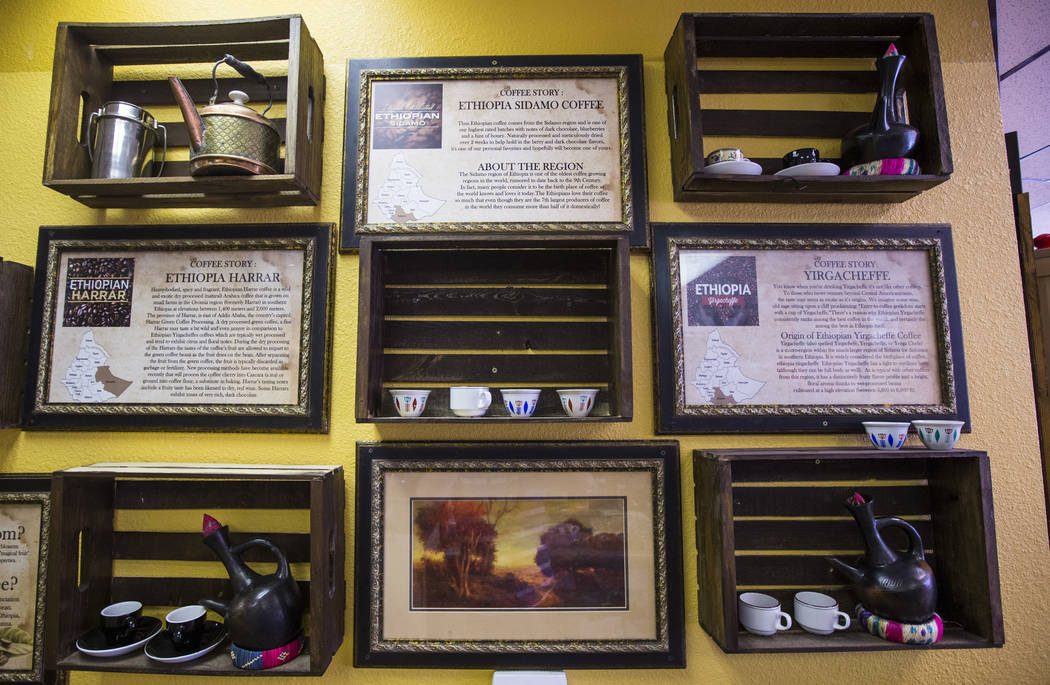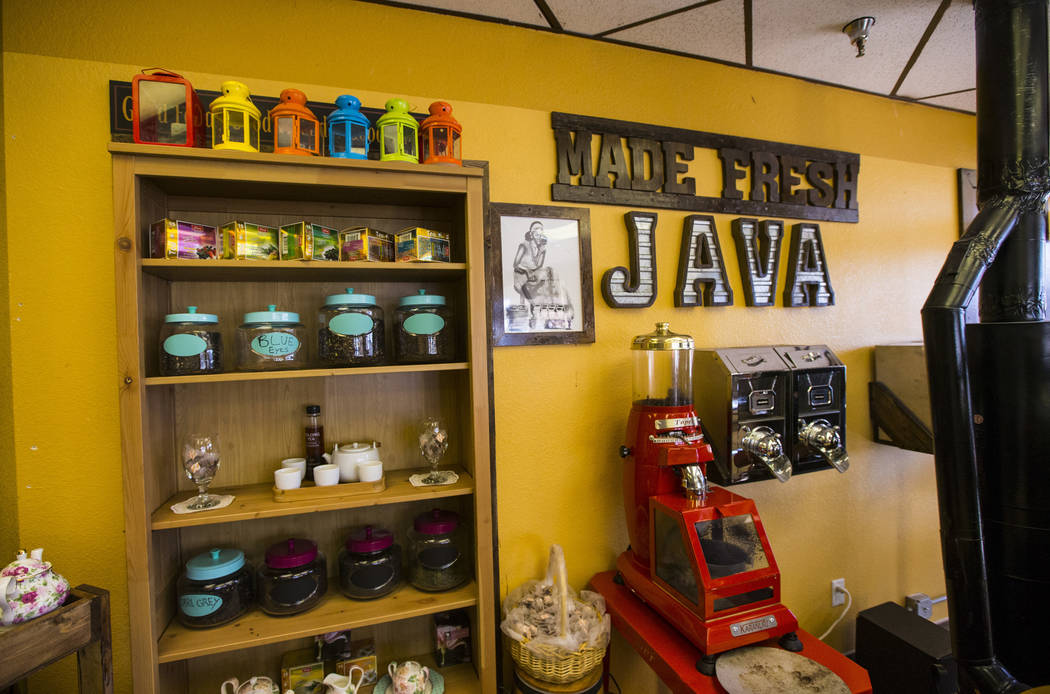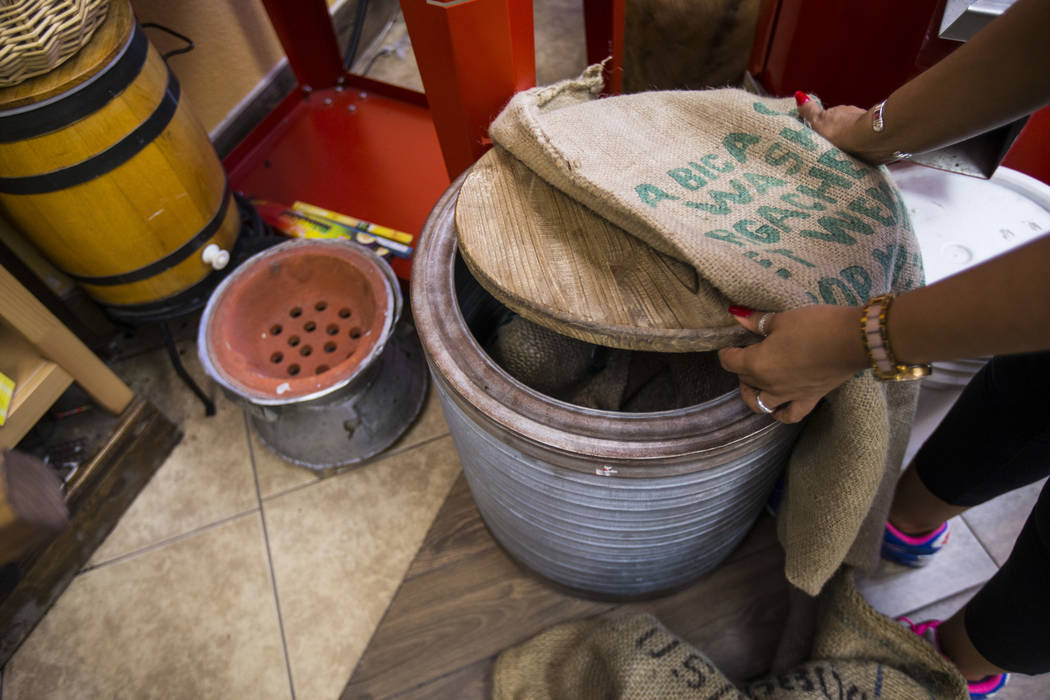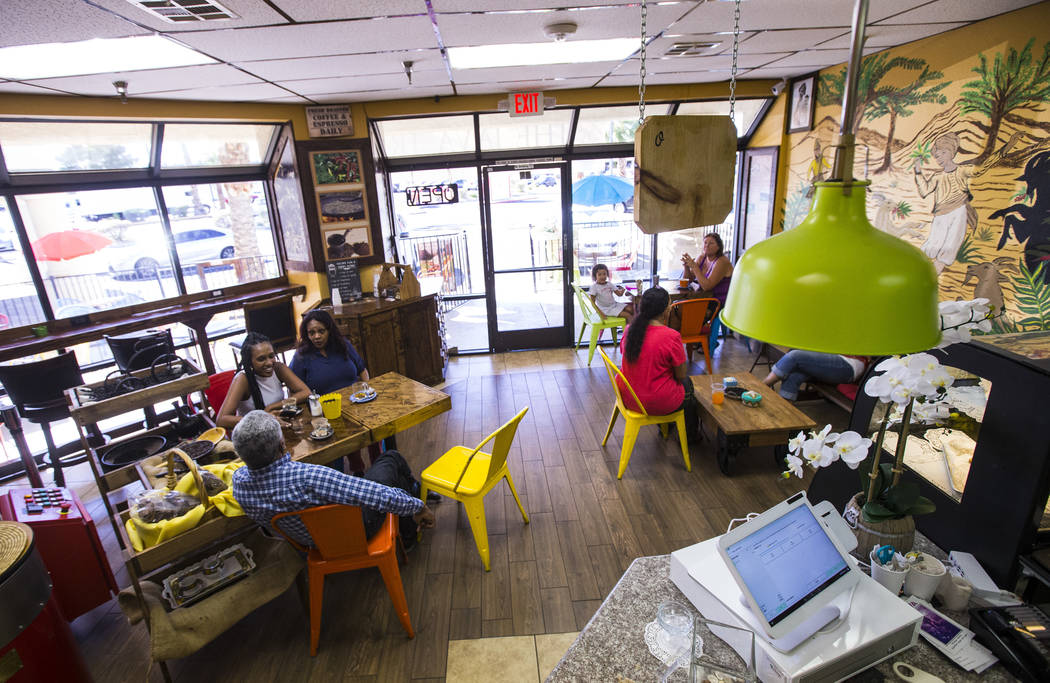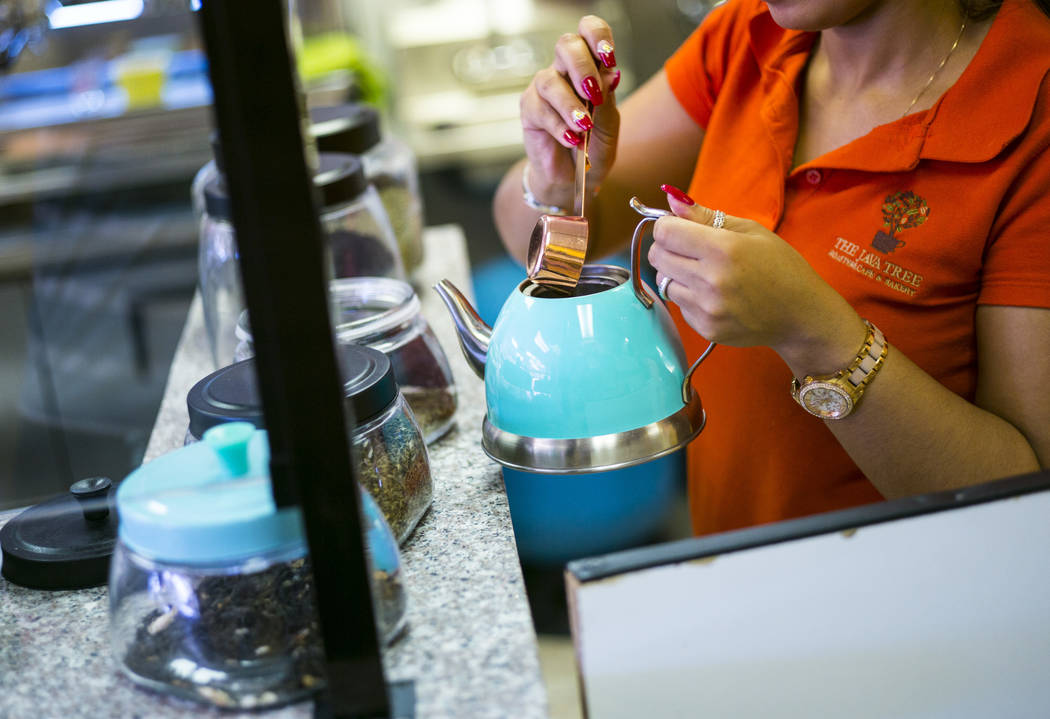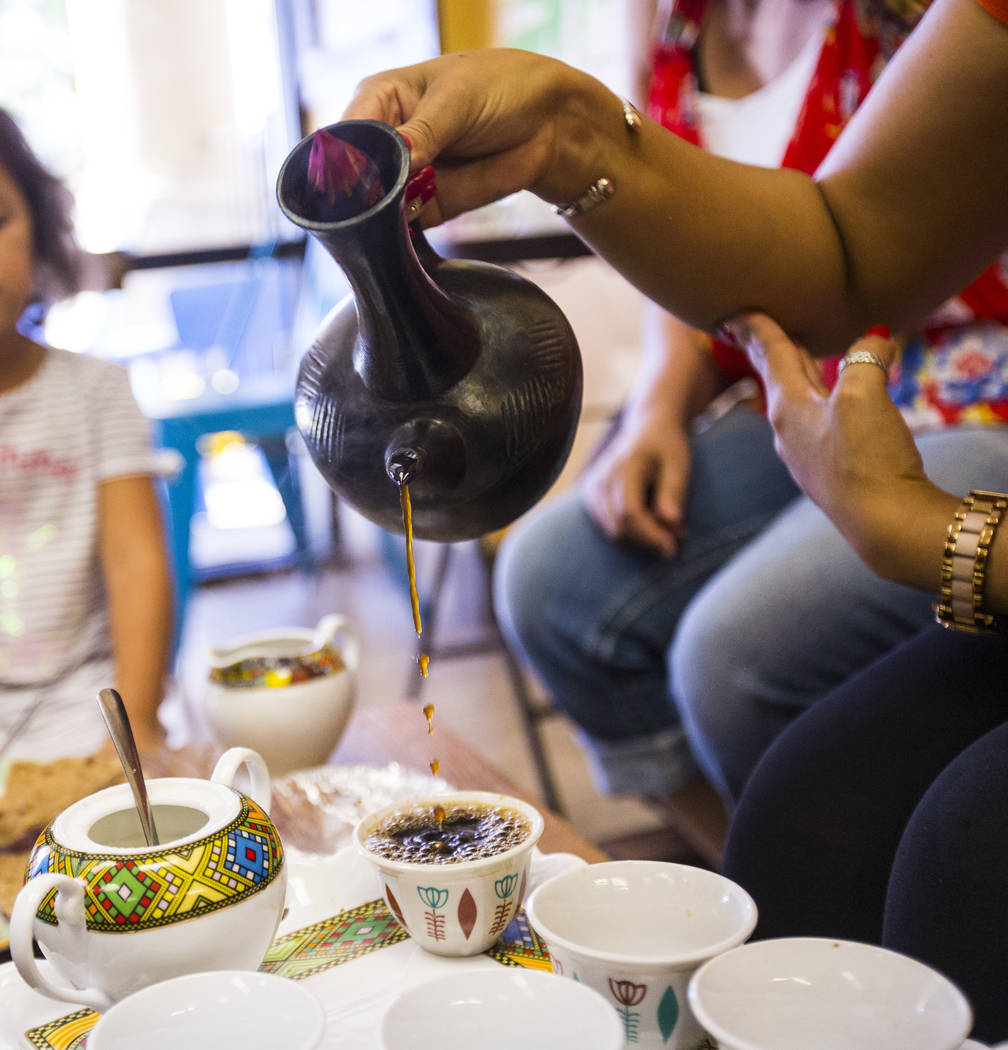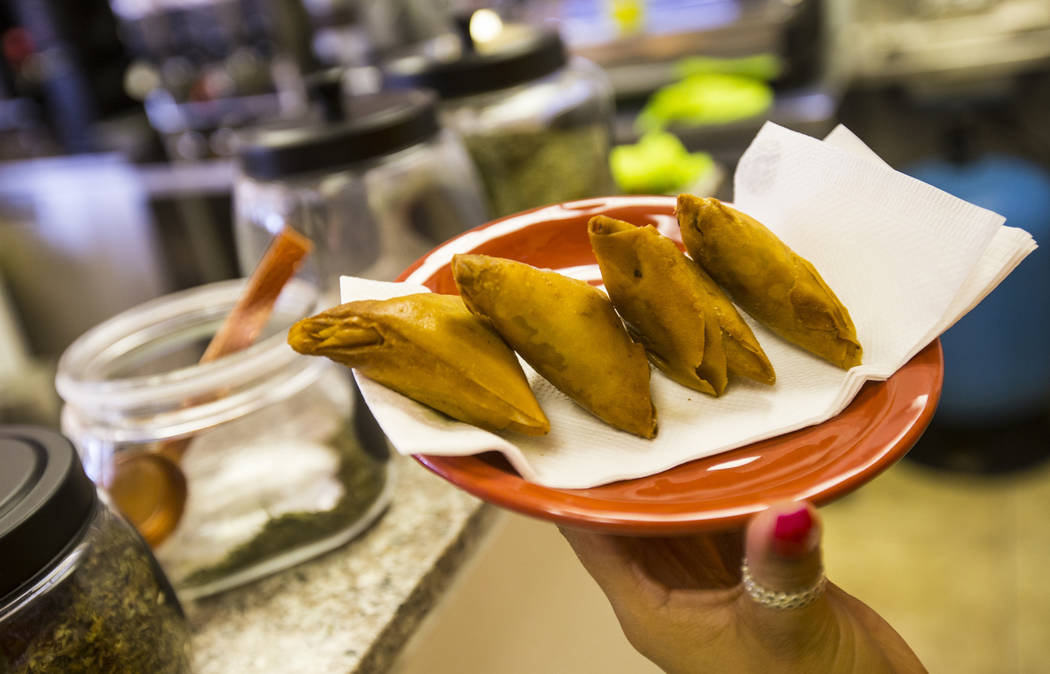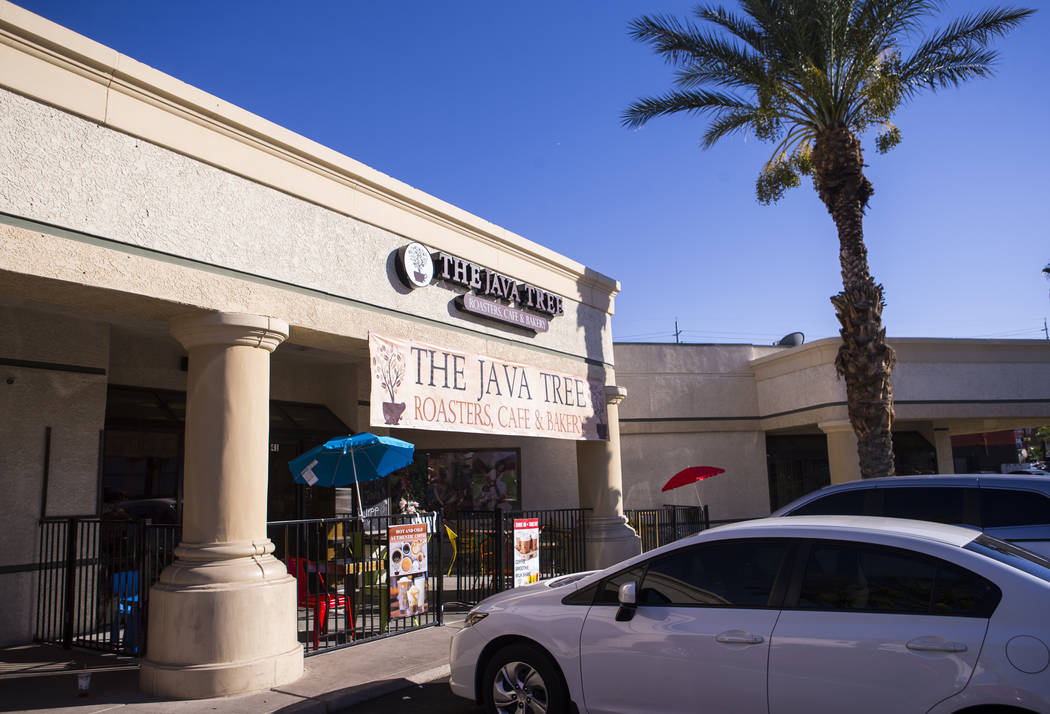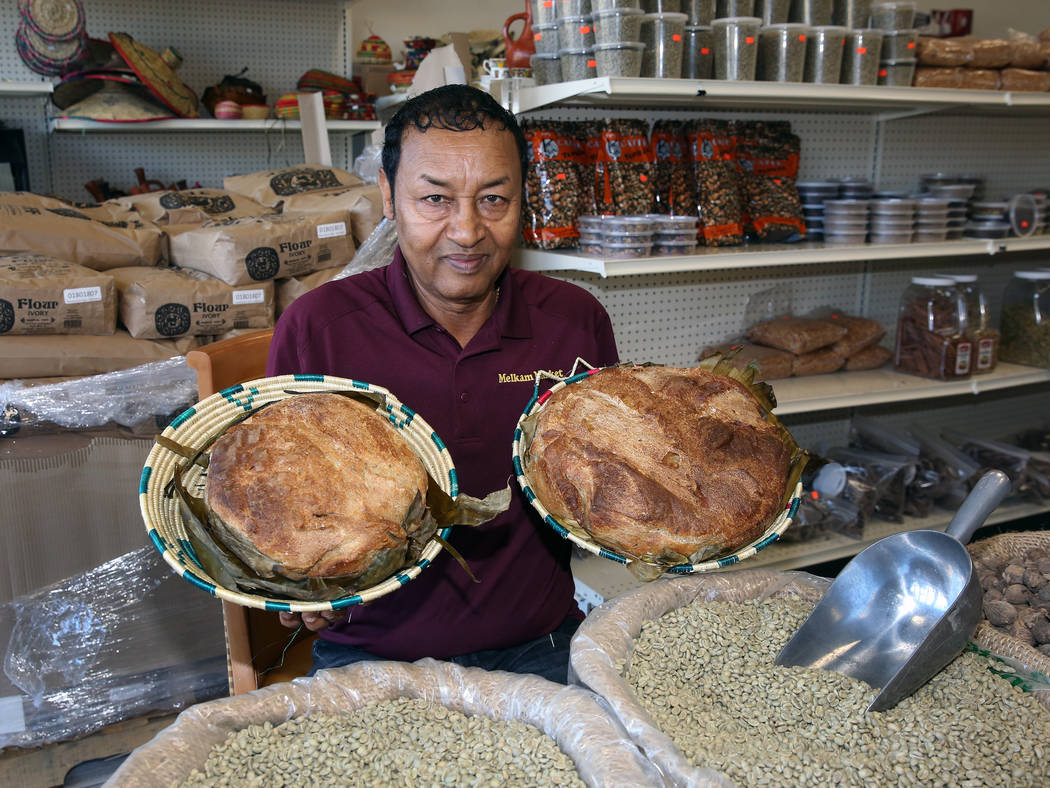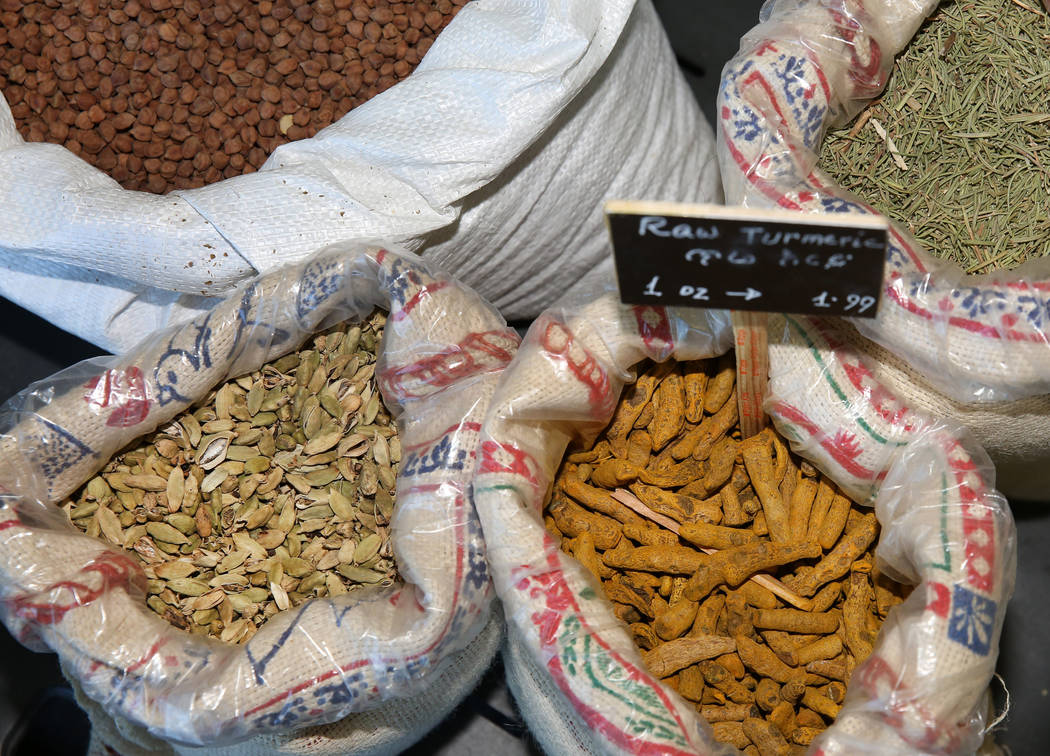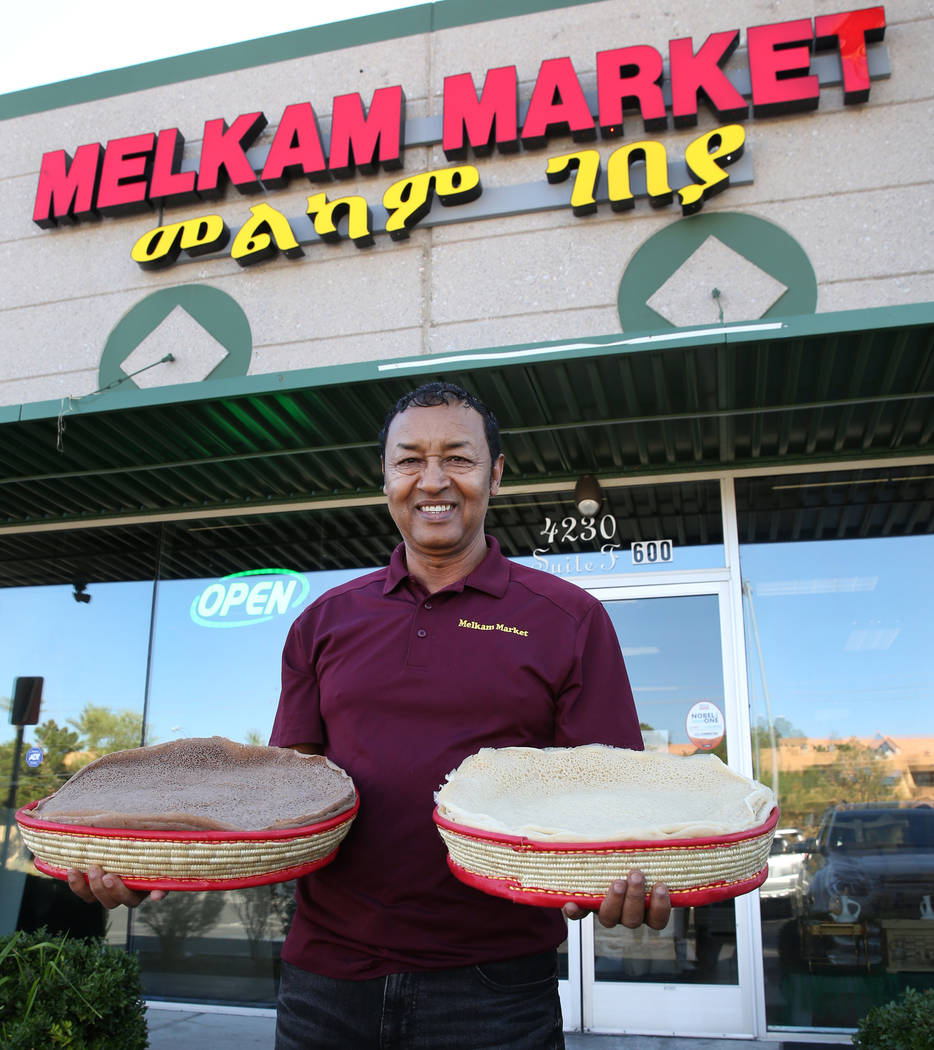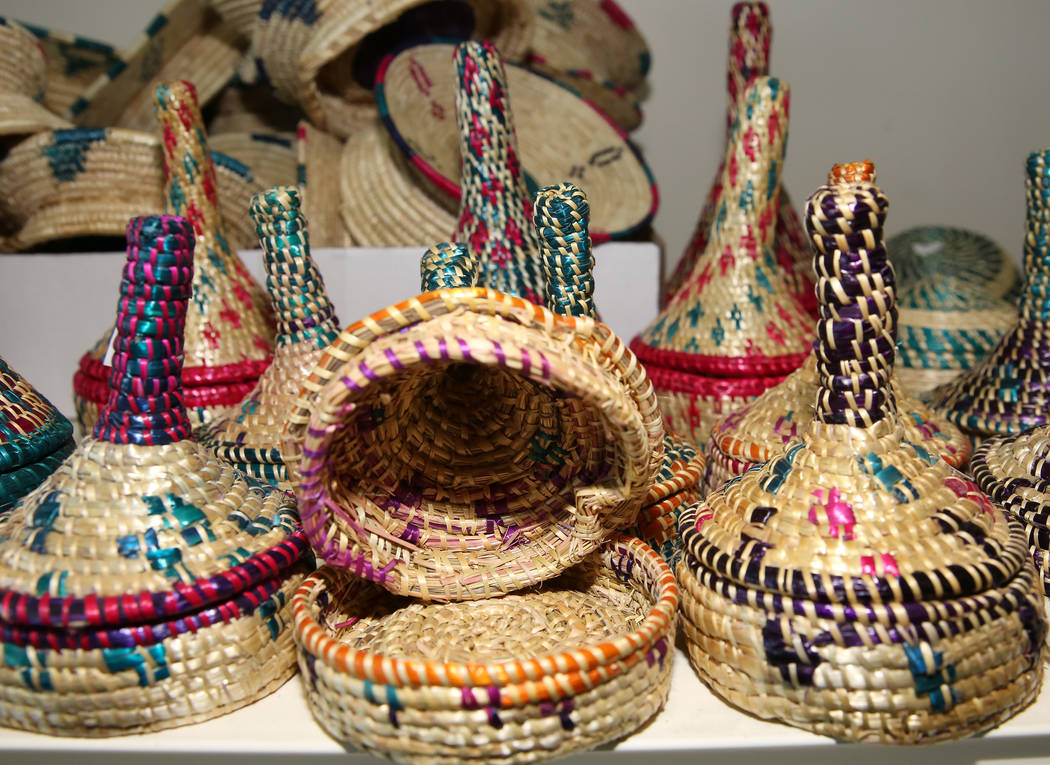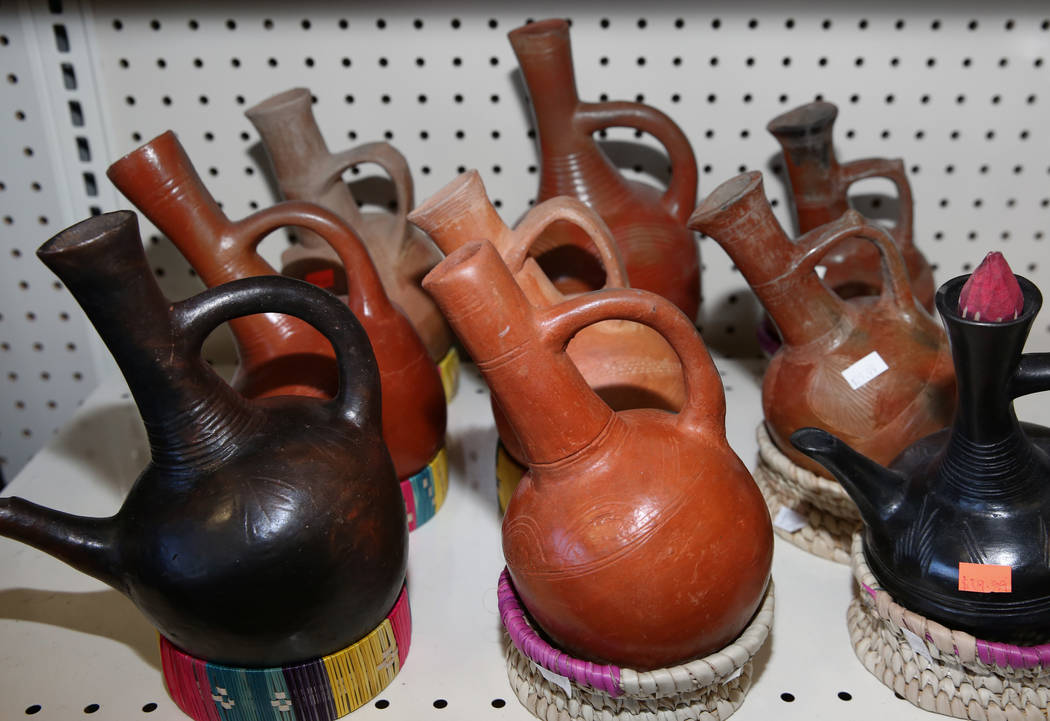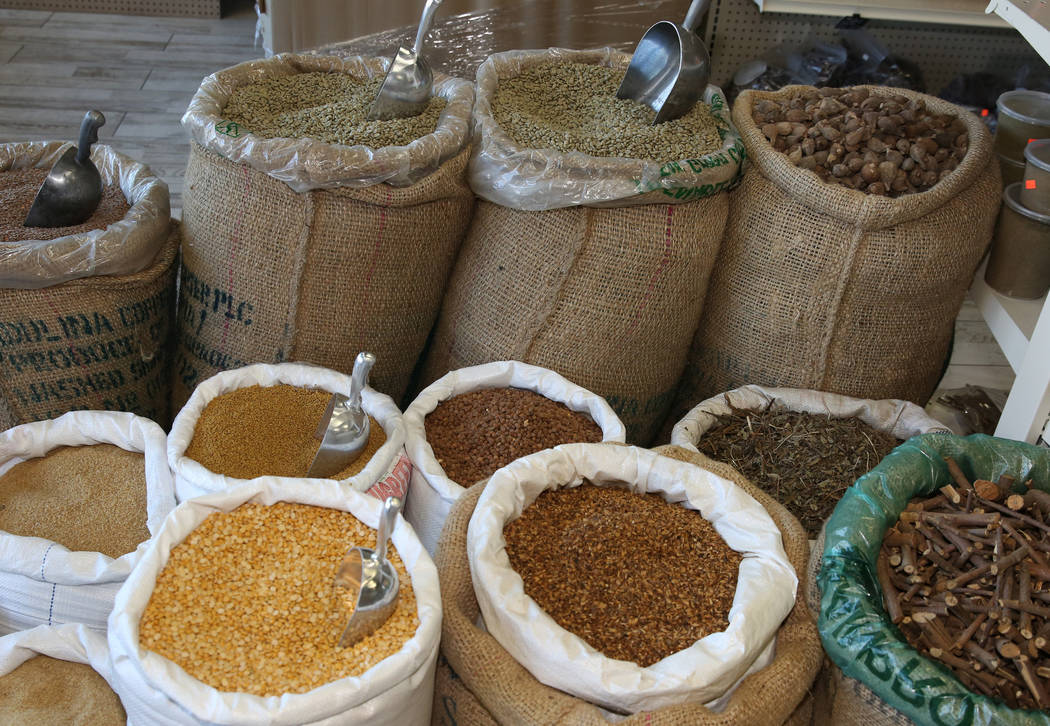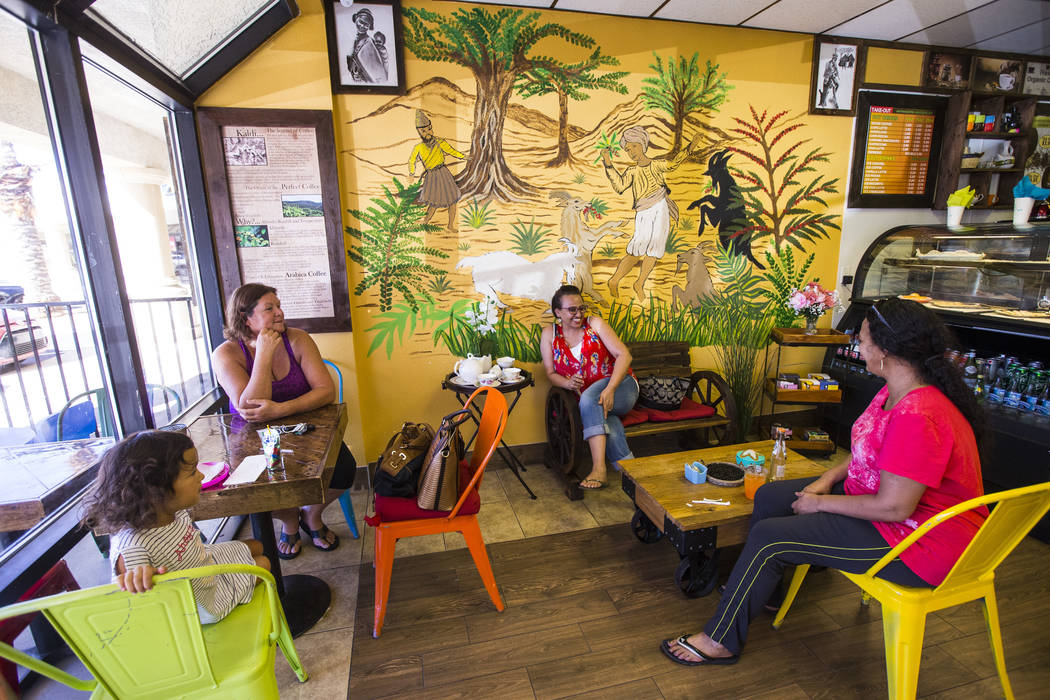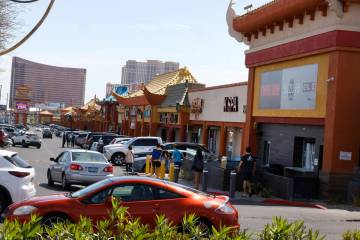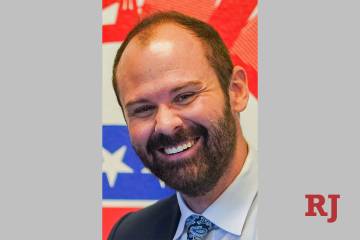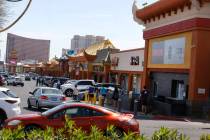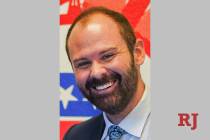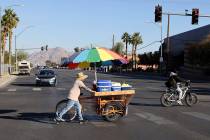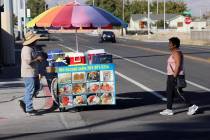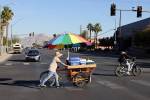‘Little Ethiopia’ may find home in central Las Vegas
From the chairs on the front patio and inside the coffee shop, to the lids on jars and what looks like lanterns on the shelf, there is plenty of color at The Java Tree. Even the roasting machine, bright red and metallic, catches the eye in the cozy Ethiopian-owned store.
In the Ethiopian culture, coffee is like Netflix for its therapeutic quality, shop manager and barista Gio Marongiu jokes, except it is nearly universally a social affair unifying family and friends through caffeine.
Opened a few months ago, The Java Tree is located in a nondescript strip mall at Decatur Boulevard and Flamingo Road where palm trees shoot up from parking medians and the Palms looms in the distance.
But it is far from alone.
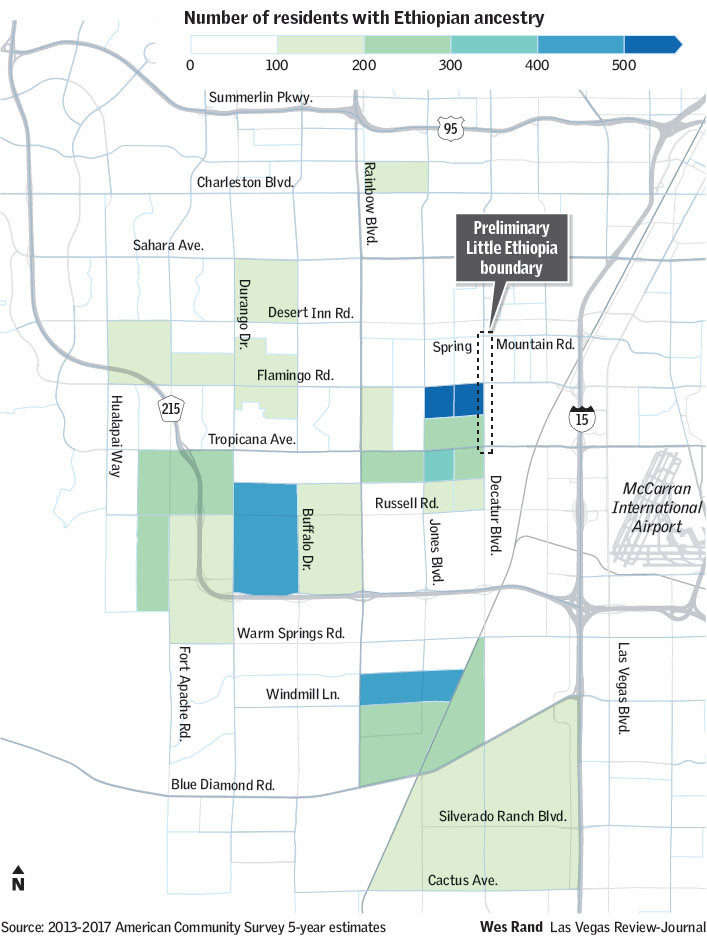
The area is central to a burgeoning contingent of Ethiopian-owned businesses, where community leaders estimate the majority of about 60 Ethiopian restaurants, shops and stores in the region can be found on a roughly two-mile stretch of Decatur, even as they fly under the radar of tourists and some locals.
“We are quintessentially what you define as an American community,” said Assemblyman Alexander Assefa, D-Las Vegas, believed to be the first Ethiopian-American elected to public office in the U.S., whose district encompasses the area. “The Ethiopian culture is very rich, very deep-rooted and very diverse. And not very well known in Southern Nevada.”
But now county elected officials are considering a move championed by Assefa to formally highlight the enclave in unincorporated county territory with a cultural designation: “Little Ethiopia.”
Earlier this month, led by Commissioner Justin Jones, the commission directed county staff to draw up a broad policy governing how elected officials would officially enact such designations, which would be first of its kind in the county but is common in major cities like New York and Los Angeles.
Jones promised the first classification to “Little Ethiopia,” loosely defined now as Decatur Boulevard between Spring Mountain Road and Tropicana Avenue. Yet the policy will provide rules for other potential cultural designations in the future such as “Chinatown.”
While the stretch on Spring Mountain Road roughly between Valley View Drive and Decatur Boulevard is colloquially known as “Chinatown,” it is not officially recognized as such by the county. Instead the area is considered an Asian design overlay district, guiding architectural and design elements for new businesses, according to county spokesman Dan Kulin.
The cultural designation is a name-only acknowledgment, but Ethiopian community leaders and businesses say it will draw attention to the locally emerging presence of the welcoming culture and unique cuisine.
“It’s good for us. It’s good for people that want to try,” Marongiu said. “The vibe will change, mentally, too.”
Growing but undercounted
The Melkam Market — an Ethiopian grocery and restaurant owned and operated by two families — touts its cultural authenticity. Eleni Tefera Belete, the main chef, serves up health-conscious delicacies on spongy Injera flatbread enjoyed without utensil and alongside pure, potent Ethiopian coffee.
Salem Tigabu, the store manager, said she moved with her family to Las Vegas about five years ago, following the lead of her sister and uncle, who came years before — an incremental migration of relatives that is routine for family-focused Ethiopians.
In Ethiopia, Tigabu’s parents built their career more than three decades ago from a modest market, she recalls. Now they own a tourist-friendly resort. Upon arrival in Las Vegas, the idea to launch Melkam Market, which she said translates to “good market,” was simply borne by the economic and cultural climate.
“We saw the appetite in the locals, the diversity,” said Tigabu, 24, a UNLV student. “The international market demand is out there in Las Vegas.”
Roughly 40,000 Ethiopians now live in Clark County, community leaders estimate based on social and religious participation. But many do not fill out the census or, when they do, they identify themselves as African-American or as “other,” according to Assefa. He said he will be launching an educational campaign to minimize underreporting ahead of next year’s census count.
The latest official figures, a five-year survey through 2017, show just fewer than 10,000 Ethiopians residing in the county. More than a quarter live within a 2-square-mile block west of Interstate 15 between Flamingo and Russell roads — an area adjacent to the proposed “Little Ethiopia,” according to a Review-Journal analysis of the data. In 2014, the census showed only 6,500 people living in the county reported to be Ethiopian.
‘Our door is open’
The Ethiopian population began to boom around the turn of the century as, inspired by relatives, they sought their own piece of the American Dream, community leaders say.
“Why you leave your country? You’re seeking for a better life,” said Feleg Demissie, president of the member-funded Ethiopian Community Center of Las Vegas.
However, migration can be difficult.
The center provides help to roughly 5,000 members who face acclimation-related struggles such as language barriers, culture clash, and race and economic pressures, particularly the challenge of supporting family both in their new home and abroad, according to Demissie. Some must reconcile leaving behind high-skilled jobs in Ethiopia in exchange for blue-collar labor in America.
With a work-health balance often elusive, she said, the center hosts a health fair twice annually. Recently, she was trained to assist people with work typically performed by an embassy or consulate general, such as passport renewals, because there is no embassy presence in the city.
“Everybody comes to us,” she says, even non-members. “Our door is open.”
Visitors to the two-story center are immediately greeted by gold-lettered balloons that spell it out: “welcome.” Upstairs, Demissie and other board members were planning this week for the second annual Ethiopian Day parade in September.
The community is expanding, contributing to the economy and the culture, and even sees itself as an emerging voting bloc. But Demissie acknowledges one focus now is to do more to reach non-Ethiopians — beginning with next month’s celebration.
“That’s (what) we’re trying to break now. We don’t want to isolate ourselves,” she says. “We want to grow. We are not shy.”
^
Contact Shea Johnson at sjohnson@reviewjournal.com or 702-383-0272. Follow @Shea_LVRJ on Twitter. Review-Journal reporter Michael Scott Davidson contributed to this report.



